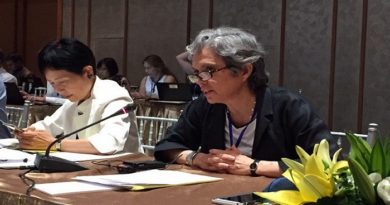New report reveals what governments must do to achieve Paris goals
As government ministers meet in Marrakech to assess global ambition towards addressing climate change in the near-term, a diverse coalition of social movements, environmental and development NGOs, trade unions, and faith groups released a startling new report, Setting the Path towards 1.5°C: A Civil Society Equity Review of pre-2020 Ambition, which says the Paris Agreement’s aspirational temperature limit of 1.5°C can only be met if governments take immediate action in the next four years to speed up the pace of cutting emissions.
The report is a follow up to 2015’s A Civil Society Equity Review, which assessed countries’ Paris commitments — their pledged emissions reductions post-2020 – against their “fair share” of such reductions, based on each country’s responsibility for causing climate change, and capability to help solve the problem.
Setting the Path towards 1.5°C looks at the short term, reviewing countries’ pre-2020 emissions reductions and climate finance pledges. It finds that, in aggregate, developed countries, in spite of having a larger fair share of emissions reductions than developing countries, are offering much lower levels of ambition, while developing countries are much closer to meeting their fair share if they fulfil their most ambitious pledges.
Globally, the report finds that that only 30-44% of the mitigation needed in 2020 to achieve the 1.5°C limit has been pledged. Without much greater levels of emissions cuts in the pre-2020 years, action in the post-2020 years will have to be much more ambitious and costly than is feasible.
In fact, the report asserts that for a scenario in which the world limits overall warming to 1.5°C, many developed countries have fair shares that are larger than could be met domestically. These countries can only meet their fair shares by providing money for additional emissions cuts in developing countries. Only with massive international cooperation – that makes it possible for developing countries to go way beyond their fair shares – can the global climate crisis be solved.
Governments cannot leave Marrakesh without Setting the Path towards 1.5°C
Beyond highlighting the urgent need to increase ambition and cooperation, the report prescribes a comprehensive set of recommendations, many aimed at the ongoing talks in Marrakech, dubbed an “Action COP,” and in particular the High-Level “Facilitative Dialogue” that is supposed to take an honest look into how to beef up the inadequate pre-2020 efforts. Among the recommendations:
Developed countries must deliver their fair share of public climate finance to enable transformation across all sectors in the effort to limit warming to 1.5°C, and help communities adapt to even that degree of warming.
G20 governments must take action now to phase out fossil-fuel production subsidies, and terminate public support for fossil exploration.
Bilateral and multilateral support for energy development must prioritise access to affordable, reliable, sustainable and modern energy.
Governments must increase the national targets to reduce emissions that they submitted before Paris.
A renewable energy partnership should be established to spur a race to the top; organise an ambitious and properly financed system to resource global renewable energy initiatives; and organise similar partnerships across other sectors, such as public transport, housing and agriculture.
All sectors of society must be engaged in these efforts, including women, workers, youth, indigenous peoples, local communities, and migrants.



